Is Family Balancing Legal in Dubai? A Comprehensive Overview
Navigating the world of fertility treatments can be complex, and when it comes to options like family balancing or gender selection, understanding the legal and ethical landscape is crucial. Dubai, a prominent global hub known for its advanced healthcare infrastructure, has become a significant destination for couples seeking these services. But the question many people ask is: Is family balancing legal in Dubai? The short answer is yes, it is. The United Arab Emirates (UAE) has a regulatory framework that permits gender selection for specific reasons, primarily to help married couples achieve a desired balance of genders in their family. This is typically done through In Vitro Fertilization (IVF) combined with Preimplantation Genetic Testing (PGT), which allows for the identification of an embryo's gender before implantation. This blog post will delve into the intricacies of family balancing in Dubai, addressing common questions and providing detailed insights into the process, its legality, ethical considerations, and what you can expect if you choose this path.
What is family balancing?
Family balancing, often referred to as gender selection or sex selection, is the process by which prospective parents can influence the gender of their future child. This desire can stem from various personal, cultural, or social reasons, such as having several children of one gender and wishing to have a child of the opposite gender to create a more balanced family unit. While the concept might seem futuristic, advancements in assisted reproductive technologies have made it a viable option for many couples.
The core of family balancing procedures relies on sophisticated laboratory techniques. It is most commonly achieved through In Vitro Fertilization (IVF) combined with Preimplantation Genetic Testing (PGT), specifically PGT for aneuploidies (PGT-A), which can identify chromosomal abnormalities and also determine the gender of embryos with high accuracy before they are transferred into the uterus. This allows parents to select an embryo of the desired gender for implantation, increasing the likelihood of conceiving a child of that specific sex.
Is gender selection legal in Dubai for family balancing?
The legality of gender selection for family balancing in Dubai and the wider UAE is a topic of considerable interest. Unlike some countries where gender selection for non-medical reasons is prohibited or heavily restricted, the UAE has a more progressive stance while maintaining strict ethical guidelines. Federal Law No. 7 of 2019 on Assisted Reproductive Technology explicitly allows gender selection for two primary reasons:
- To prevent the transmission of sex-linked genetic disorders (e.g., hemophilia, Duchenne muscular dystrophy).
- For family balancing, provided the couple already has children of one gender and wishes to have a child of the opposite gender.
This legal framework ensures that the technology is utilized responsibly and ethically. Clinics offering these services in Dubai must be licensed by the Ministry of Health and Prevention (MOHAP) and the Dubai Health Authority (DHA), adhering to strict protocols and guidelines. Prospective parents often undergo counseling to ensure they understand the process and its implications, aligning their decisions with UAE laws and ethical considerations.
What is the process of family balancing through IVF in Dubai?
The process of family balancing in Dubai, as with any advanced fertility treatment, is a multi-step journey. It typically begins with a thorough assessment of the couple's medical history and fertility status. Here's a breakdown of the key stages:
- Initial Consultation and Assessment: The couple meets with a fertility specialist to discuss their reasons for seeking family balancing, review their medical history, and undergo various tests, including blood work, ultrasounds, and sperm analysis. This step determines their eligibility and helps tailor a personalized treatment plan.
- Ovarian Stimulation: The female partner receives hormonal medications to stimulate her ovaries to produce multiple eggs. This increases the chances of retrieving several embryos for genetic testing.
- Egg Retrieval: Once the eggs are mature, they are retrieved from the ovaries through a minor surgical procedure performed under light sedation.
- Fertilization (IVF): The retrieved eggs are then fertilized with the male partner's sperm in a laboratory setting. This often involves Intracytoplasmic Sperm Injection (ICSI), where a single sperm is directly injected into each egg to maximize fertilization rates.
- Embryo Development and Biopsy: The fertilized eggs, now embryos, are cultured in the laboratory for several days until they reach the blastocyst stage (usually day 5 or 6 of development). At this stage, a few cells are carefully biopsied from each embryo.
- Preimplantation Genetic Testing (PGT): The biopsied cells are sent to a specialized genetic laboratory for PGT-A analysis. This test screens for chromosomal abnormalities and, crucially, identifies the gender of each embryo.
- Embryo Selection and Transfer: Based on the PGT results, embryos of the desired gender that are deemed chromosomally healthy are identified. One or, in some cases, two of these selected embryos are then transferred into the woman's uterus. Any remaining healthy embryos of the desired gender can be cryopreserved (frozen) for future use.
- Pregnancy Test and Follow-up: Approximately 10-14 days after the embryo transfer, a blood test is performed to confirm pregnancy. If positive, regular prenatal care follows.
What is the success rate of family balancing in Dubai?
The success rate of family balancing is generally discussed in two parts: the accuracy of gender selection and the overall pregnancy success rate. When it comes to determining the gender of an embryo, PGT-A is highly accurate, often exceeding 98%. This means that once an embryo of the desired sex is identified and transferred, there's a very high probability that the resulting child will be of that gender.
However, the overall pregnancy success rate depends on various factors, similar to standard IVF cycles. These include:
- Female age: Younger women generally have higher success rates due to better egg quality and quantity.
- Ovarian reserve: The number and quality of eggs a woman can produce.
- Sperm quality: The health and motility of the male partner's sperm.
- Clinic expertise: The experience and technology available at the fertility clinic.
- Number of embryos available: A greater number of healthy embryos for selection increases the chances of a successful transfer.
Many clinics in Dubai boast high success rates for their IVF and PGT programs, often comparable to leading fertility centers worldwide. It's crucial for couples to have a realistic understanding of these rates and discuss them thoroughly with their fertility specialist.
What are the ethical considerations of family balancing in Dubai?
While family balancing is legal in Dubai, it is not without its ethical debates. These discussions often focus on the potential for gender discrimination, the societal implications of preferring one gender over another, and the moral status of embryos. Dubai's regulatory framework attempts to address these concerns by:
- Limiting reasons for selection: As mentioned, it's primarily allowed for family balancing (to achieve a balance of genders) or to prevent sex-linked genetic diseases, not for pure preference or social bias that could lead to widespread gender imbalance.
- Requiring counseling: Couples are often required to undergo counseling to ensure they have fully considered the implications of gender selection and are making an informed decision.
- Adherence to Islamic principles: The UAE's laws are rooted in Islamic jurisprudence, which generally permits gender selection within certain bounds, particularly when aimed at achieving family harmony or addressing medical needs. Islamic scholars often debate the nuances, but the prevailing view in the UAE aligns with the current legal framework.
Clinics in Dubai emphasize ethical practices, ensuring transparency and providing comprehensive information to couples. The goal is to provide a service that supports family well-being without fostering detrimental societal trends.
What is the cost of family balancing in Dubai?
The cost of family balancing in Dubai can vary significantly depending on the clinic, the specific services included, and individual patient needs. Generally, the price encompasses the entire IVF cycle with the added cost of Preimplantation Genetic Testing (PGT) for gender selection. Here's a breakdown of what the cost usually covers:
- Initial consultation and diagnostic tests: Blood tests, ultrasounds, and semen analysis.
- Medications: Hormonal drugs for ovarian stimulation.
- IVF procedure: Egg retrieval, fertilization, and embryo culture.
- PGT-A: Embryo biopsy and genetic analysis for chromosomal health and gender identification.
- Embryo transfer: The procedure to implant the selected embryo.
- Follow-up consultations: Post-transfer care and pregnancy confirmation.
On average, couples can expect the total cost to range from approximately $8,000 to $15,000 USD. It's important to note that this is an estimated range, and some clinics may offer packages that include certain services or have different pricing structures. Additional costs could arise if multiple IVF cycles are needed, if embryo freezing and storage are required for unused embryos, or if unexpected complications occur.
It's advisable to get a detailed breakdown of costs from your chosen clinic during the initial consultation to avoid any surprises. While medical insurance typically does not cover elective family balancing procedures, some clinics may offer financing options.
Can single individuals or unmarried couples undergo family balancing in Dubai?
In adherence to the UAE's laws and cultural values, family balancing and other assisted reproductive technologies, including standard IVF, are generally restricted to legally married couples. The emphasis in the UAE's legal framework for reproductive medicine is on the formation of families within the traditional marital union. This means that single individuals, unmarried couples, or same-sex couples are typically not eligible for these treatments in Dubai.
Recent amendments to UAE family laws have introduced some progressive changes, such as allowing unmarried non-Muslim couples to undergo IVF under specific conditions, provided the eggs and sperm belong to the couple involved. However, the overarching principle for procedures like family balancing remains rooted in marital status, with the primary goal being to support existing married families in achieving their desired family composition.
Are there age restrictions for family balancing in Dubai?
While UAE law does not impose a strict legal age limit for undergoing family balancing or IVF, fertility clinics in Dubai typically have clinical guidelines based on medical best practices and success rates. Generally, women over the age of 45 are advised about the significantly reduced chances of success due to the natural decline in egg quality and quantity. Some clinics may have internal policies regarding the maximum age for treatment, often around 45-50 years for the female partner.
The decision to proceed with family balancing at an advanced maternal age involves a thorough discussion between the couple and their fertility specialist. Factors such as ovarian reserve, overall health, and the presence of any underlying medical conditions will be carefully evaluated to determine the likelihood of a successful pregnancy and the potential risks involved.
What happens to embryos of the non-preferred gender after family balancing?
The fate of embryos of the non-preferred gender or those not selected for transfer after family balancing is a significant ethical and practical consideration. In Dubai, and generally within the UAE, the regulations are strict. According to UAE law, unused embryos are typically not allowed to be donated to other couples or for research purposes. The options for unused embryos usually include:
- Discarding: The most common practice is the ethical disposal of embryos that are not chosen for transfer, especially if they are of the non-preferred gender and the couple has completed their family.
- Freezing for future use: Couples may opt to freeze any remaining healthy embryos of the desired gender for future pregnancy attempts. In some cases, if allowed by the clinic and law, couples might choose to freeze embryos of the non-preferred gender as well, though this is less common for family balancing specific cases.
It is crucial for couples to have a clear understanding of the clinic's policy and the legal provisions regarding embryo disposition before beginning the family balancing process. Clinics will ensure that couples are fully informed of these options and make a decision that aligns with their personal values and the legal framework.
Can family balancing help with genetic disease prevention?
Absolutely. One of the legally permissible and medically significant reasons for gender selection in Dubai is the prevention of sex-linked genetic disorders. Many serious genetic conditions are carried on the X chromosome and primarily affect one gender. For instance, conditions like hemophilia, Duchenne muscular dystrophy, and Fragile X syndrome predominantly affect males. If a couple is known to be a carrier for such a sex-linked disorder, PGT during an IVF cycle can not only determine the gender of the embryos but also test for the specific genetic mutation.
In these cases, embryos of the unaffected gender or those confirmed to be free of the genetic disorder can be selected for transfer. This allows couples to significantly reduce the risk of passing on a devastating inherited disease to their child, making family balancing a powerful tool for preventative healthcare in such situations. This dual benefit of gender selection is a key reason why it is permitted and regulated in Dubai.
What should I look for in a family balancing clinic in Dubai?
Choosing the right clinic for family balancing is a critical decision. Dubai has several world-class fertility centers, but it's important to do your research. Here's what to look for:
- DHA Licensure and Accreditation: Ensure the clinic is fully licensed by the Dubai Health Authority (DHA) and adheres to all local regulations. International accreditations can also be a good sign of quality.
- Experienced Specialists: Look for fertility doctors and embryologists with extensive experience in IVF and PGT. Check their qualifications, success rates, and patient testimonials.
- Advanced Technology: A reputable clinic should utilize state-of-the-art laboratory equipment and techniques for IVF, ICSI, and PGT to ensure the highest accuracy and success rates.
- Transparent Pricing: The clinic should provide a clear and detailed breakdown of all costs involved, with no hidden fees. Understand what is included in the package and what might be extra.
- Comprehensive Counseling: A good clinic will offer counseling services, not just on the medical aspects but also on the ethical, emotional, and psychological considerations of family balancing.
- Patient-Centric Care: Look for a clinic that offers personalized treatment plans, clear communication, and a supportive environment throughout your journey.
- Success Rates: While not the only factor, inquire about their clinic-specific success rates for IVF and PGT, understanding that individual results can vary.
Don't hesitate to ask questions during your initial consultations and compare options before making a decision. Reading reviews and seeking recommendations can also be helpful.
What are the alternatives to family balancing through IVF?
While family balancing through IVF with PGT offers the highest accuracy in gender selection, it's natural to wonder about alternatives. However, it's important to understand that other methods have significantly lower or unproven success rates:
- Sperm Sorting (MicroSort): This technique attempts to separate sperm carrying X (female) and Y (male) chromosomes based on their DNA content. While it can increase the likelihood of conceiving a specific gender, its accuracy is far lower than PGT (around 70-90% for girls and 60-70% for boys) and it is not universally available or legally permitted in all regions. In the UAE, PGT remains the primary and most reliable method.
- Shettles Method and Ericsson Method: These are natural timing and lifestyle-based methods that suggest certain practices (like timing intercourse relative to ovulation, specific sexual positions, or dietary changes) can influence gender. There is little to no scientific evidence to support the effectiveness of these methods, and they are generally considered anecdotal.
- Chinese Gender Chart/Folklore: Various cultural traditions and charts claim to predict or influence gender based on factors like the mother's age and month of conception. These are purely based on folklore and have no scientific basis.
For couples seriously considering family balancing in Dubai, IVF with PGT is the most reliable and legally recognized method. Other "alternatives" do not offer the same level of accuracy or regulatory approval.
For those considering family balancing or other advanced fertility treatments in Dubai, PlacidWay can help you explore reputable clinics and understand your options. We connect individuals and couples with leading healthcare providers globally, ensuring access to quality and ethically guided services to help you achieve your family goals.

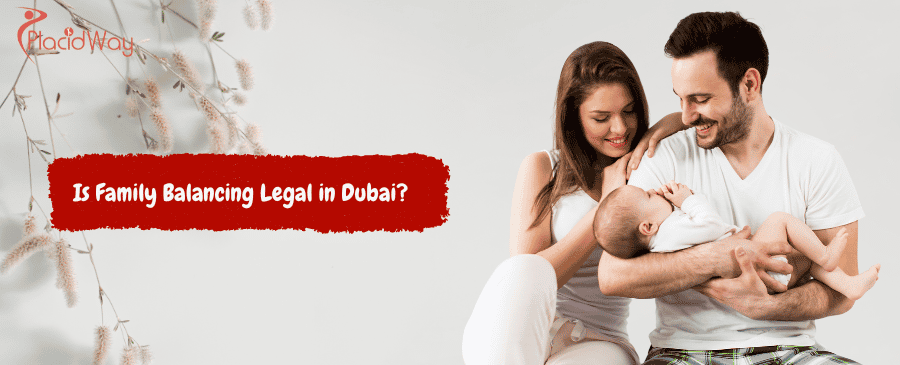

.png)

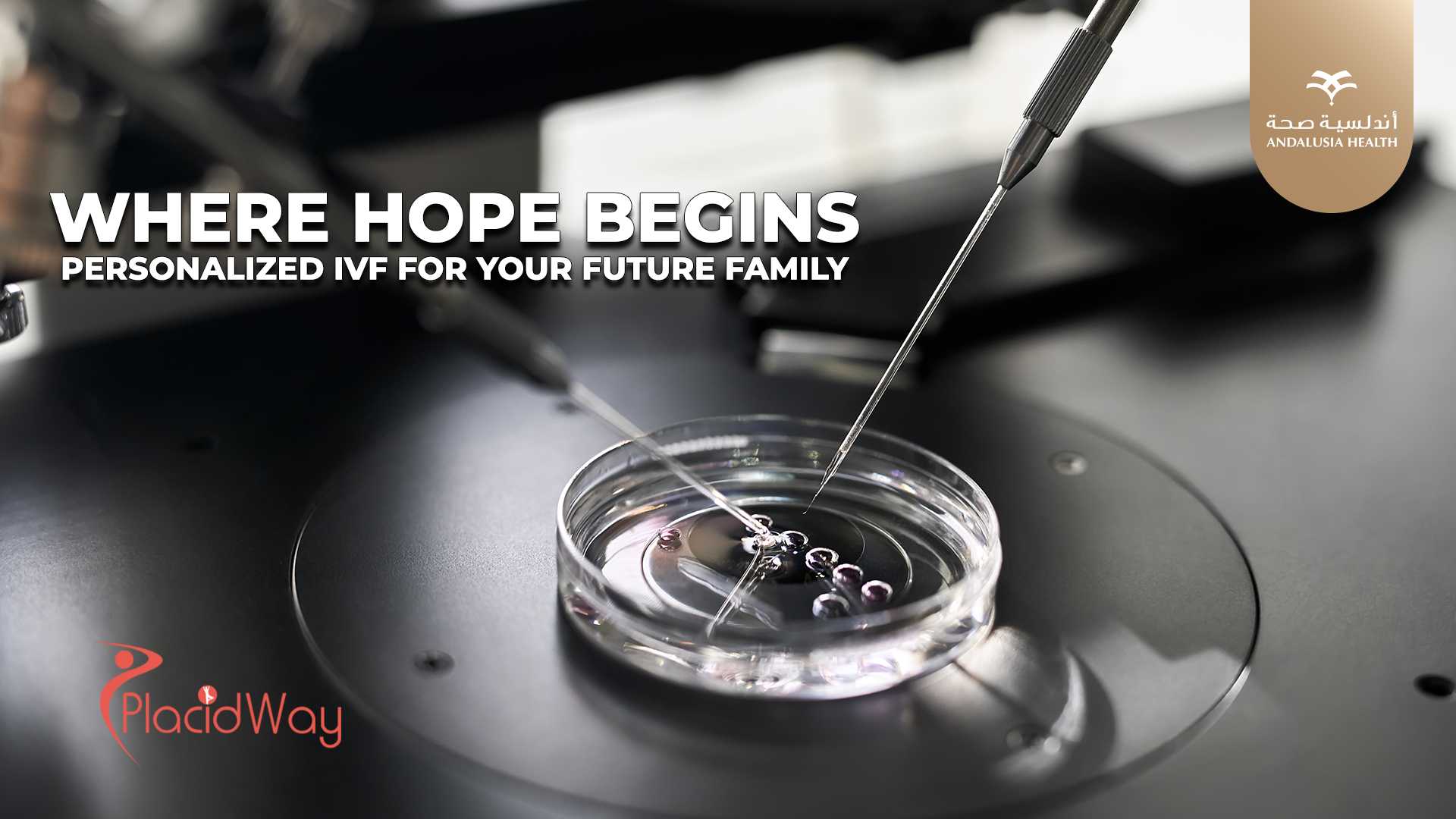

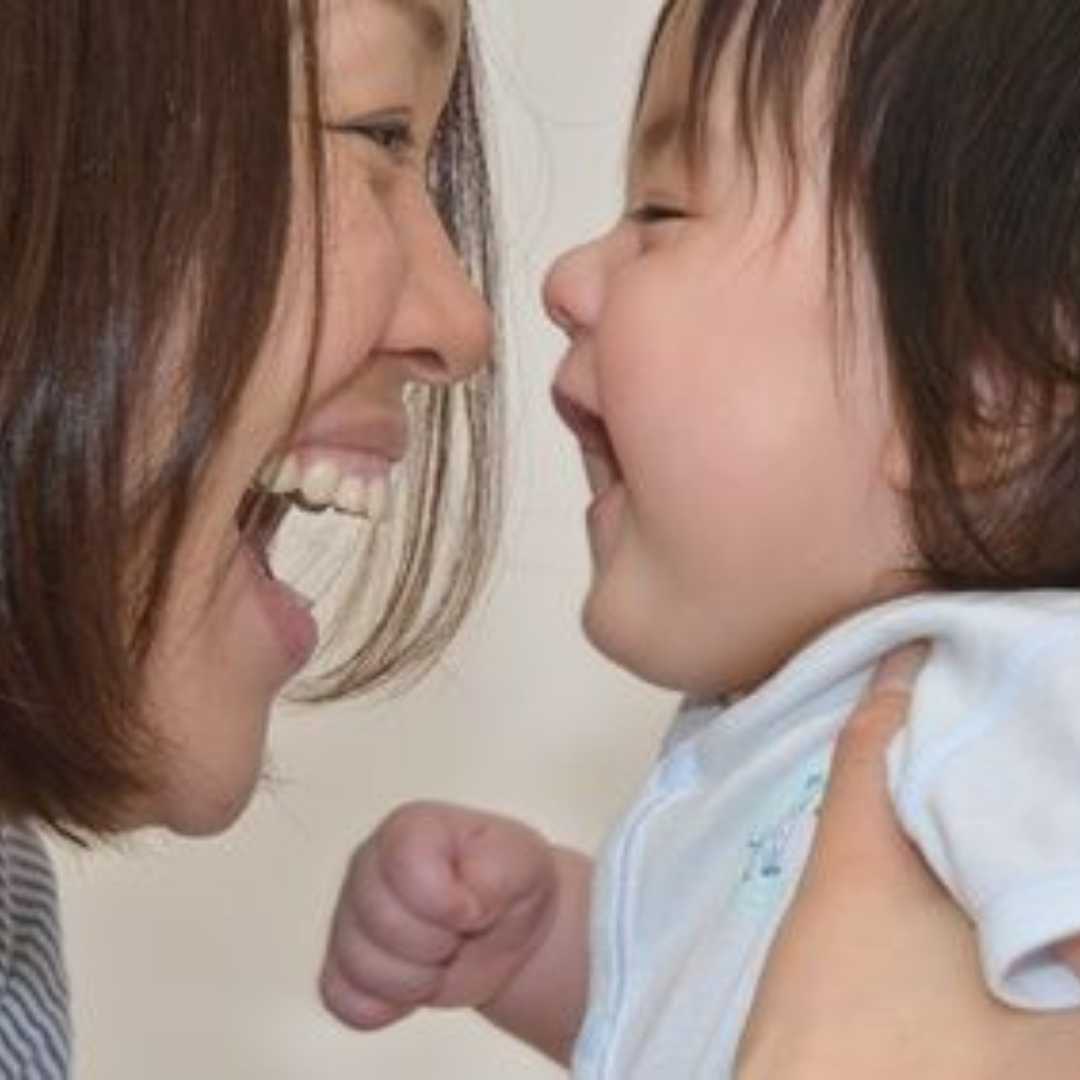






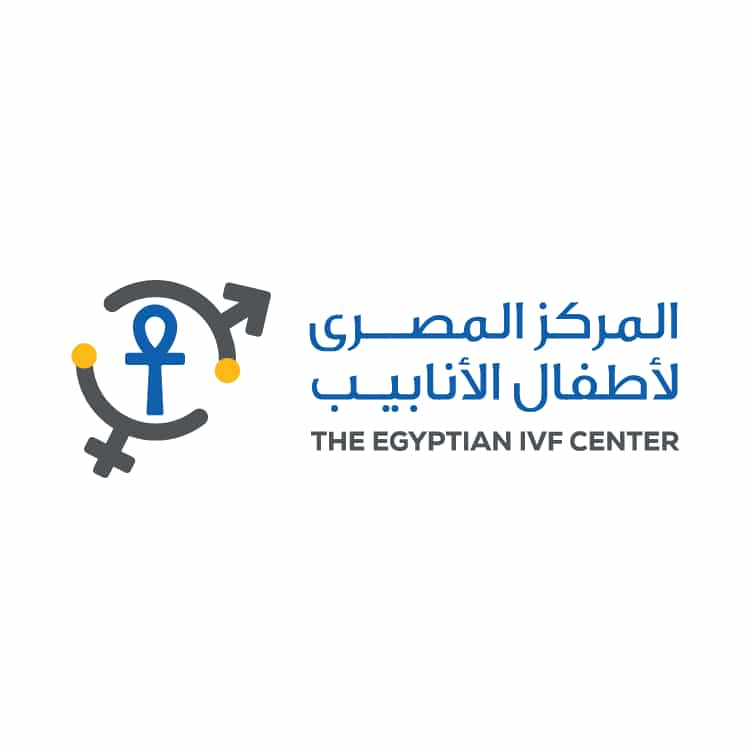
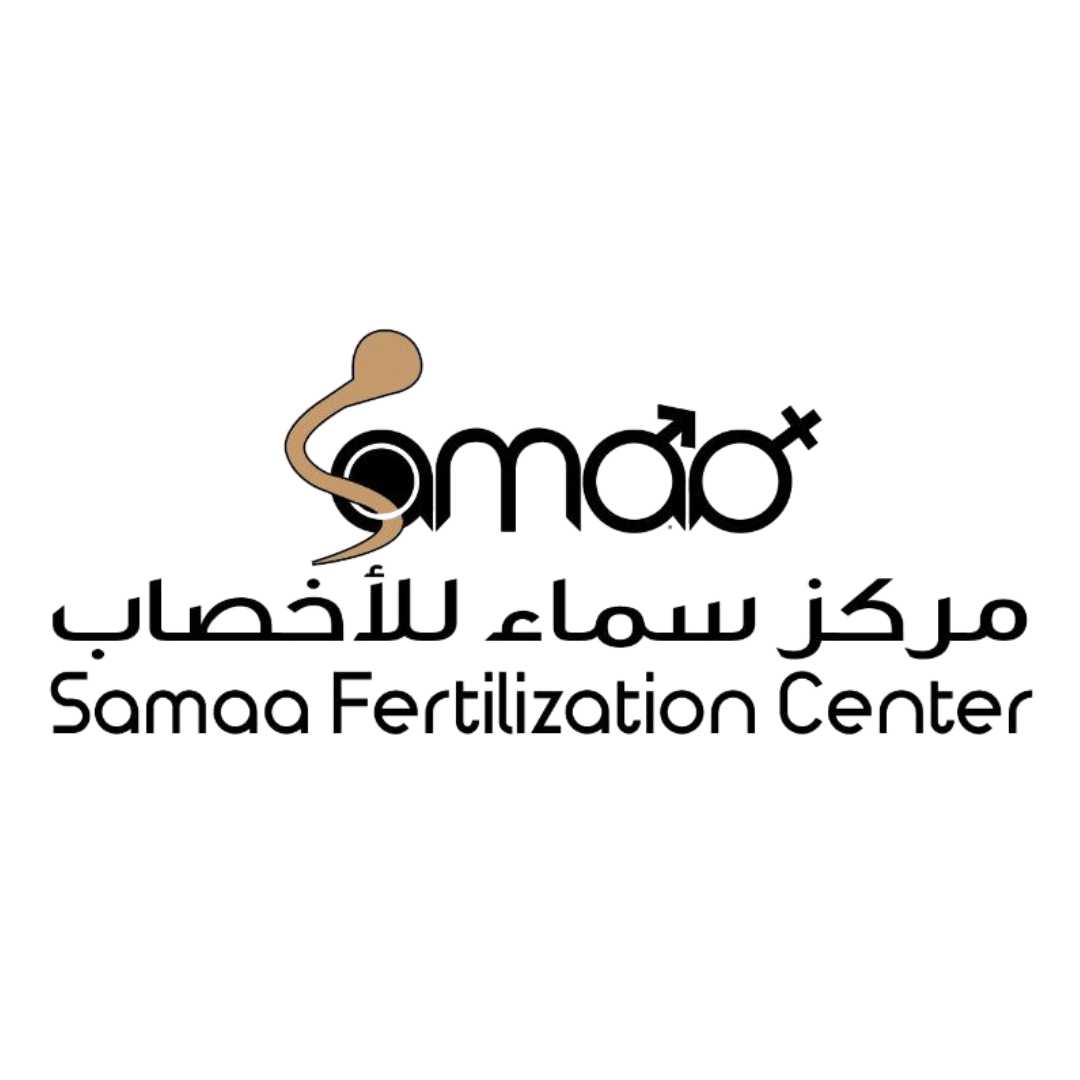
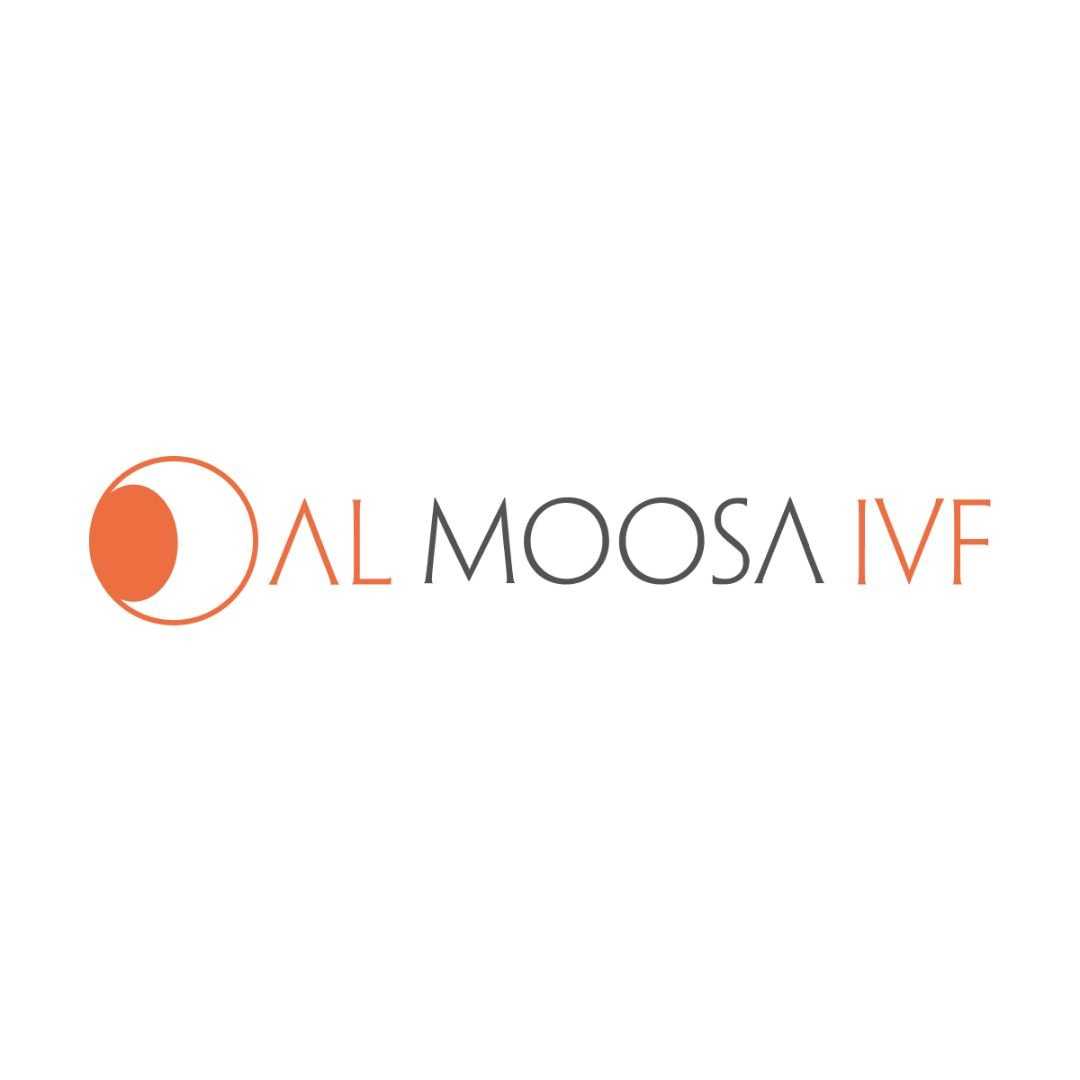

Share this listing